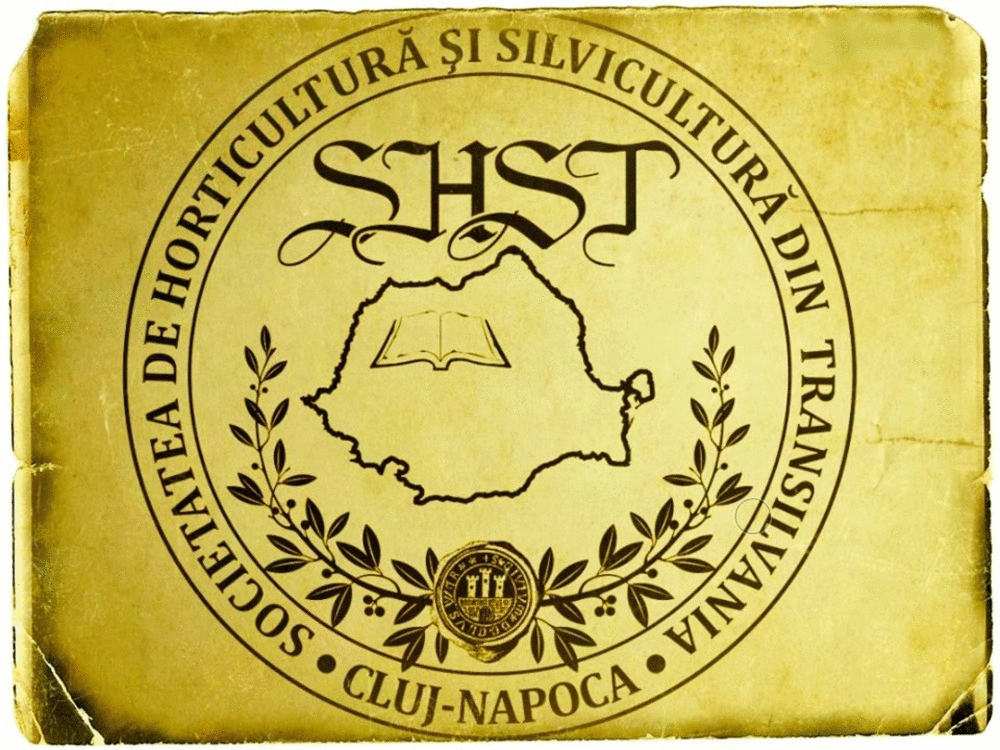Combining Microsatellite Markers and Ampelography for Better Management of Romanian Grapevine Germplasm Collections
DOI:
https://doi.org/10.15835/nsb10210297Keywords:
autochthonous cultivars; genotyping; homonyms; synonyms; SSR markersAbstract
Aiming to investigate the correspondence of phenotypic variability and molecular markers, 50 varieties of Vitis vinifera ssp. vinifera, ancient grapevine varieties grown on Romanian territory, were selected to be analysed. All varieties were subjected to ampelographic analyses with OIV descriptors and also to molecular analyses with 13 microsatellites. The morphology description with recommended methods corresponded with the reference literature, proving the correct registration of the varieties at the moment of acquisition. Markers efficiency for assessing the genetic diversity among studied varieties was evaluated by computation of statistic parameters referring to the polymorphisms found. Among the internationally recommended SSR markers, ISV4 and VMCNG4b9 markers displayed interesting PIC and PI values. By comparing the SSR profiles of the 50 Romanian grapevine varieties with those in the Eu database, the following can be concluded: confirmation of 10 synonymies mentioned in old documents, while 3 synonymies mentioned in old reference literature were not confirmed, new synonyms were found for 4 accessions, additional synonyms were found for 4 accessions, which are to be added to the previous ones already mentioned in the literature, the synonymies in three groups of accessions were documented for the first time in the specialised literature, the unicity of three Romanian accessions was proved (ʻMoroștinăʼ, ʻNegru mareʼ and ʻRomânieʼ) and the genetic profiles of 15 varieties were identical to those already recorded in the investigated databases
Metrics
References
Bodea M, Pamfil D, Pop R, Pop IF (2009). Use of random amplified polymorphic DNA to study genetic diversity anong Romanian local vine (Vitis vinifera L.) cultivars. Bulletin of University of Agricultural Sciences and Veterinary Medicine Cluj-Napoca. Horticulture 66(2):17-22.
Butiuc-Keul AL, Craciunas C, Coste A, Fagaro M (2010). Discrim¬ination and genetic polymorphism of several cultivars of grapevine by RAPD markers. Romanian Biotechnological Letters 15(1):110-115.
Carimi F, Mercati F, Abbate L, Sunseri F (2010). Microsatellite analyses for evaluation of genetic diversity among Sicilian grapevine cultivars. Genetic Resources and Crop Evolution 57(5):703-719.
Constantinescu G, Negreanu E, Lăzărescu V, Poenaru I, Alexei O, Boureanu C (1959). Ampelografia Republicii Populare Române. Vol. II, Editura Academiei R.P.R., Bucuresti, Romania.
Constantinescu G, Negreanu E, Lăzărescu V, Poenaru I, Alexei O, Boureanu C (1960). Ampelografia R.P.R. Vol III, Editura Academiei R.P.R., Bucuresti, Romania.
Constantinescu G, Negreanu E, Lăzărescu V, Poenaru I, Alexei O, Mihalca G (1961). Ampelografia Republicii Populare Române. Vol. IV, Editura Academiei R.P.R., Bucuresti, Romania.
Constantinescu G, Negreanu E, Lăzărescu V, Poenaru I, Alexei O, Boureanu C (1965). Ampelografia Republicii Populare Române. Vol. VI, Editura Academiei R.P.R., Bucuresti, Romania.
Constantinescu G, Negreanu E, Lăzărescu V, Poenaru I (1966). Ampelografia Republicii Socialiste Romania. Vol VII, Editura Academiei R.S.R. Bucuresti, Romania.
Coste A, Postolache D, Popescu F, Butiuc-Keul A L (2010). Au¬thentication of valuable grapevine varieties from Romania through molecular markers. Romanian Biotechnological Letters 15(1):3-11.
Fatahi R, Ebadi A, Bassil N, Mehlenbacher SA, Zamani Z (2003). Characterization of Iranian grapevine cultivars using microsatellite markers. Vitis 42:185-192.
Ibanez J, Andre´s MT, Molino A, Borrego J (2003). Genetic study of key Spanish grapevine varieties using microsatellites analysis. American Journal of Enology and Viticulture 54:22-29.
Indreas A, Visan L (2001). Principalele soiuri de struguri pentru vin cultivate in Romania ï›Main varieties of grapes for wine grown in Romaniaï. Editura Ceres, Bucuresti, Romania.
Gheorghe RN, Popescu CF, Pamfil D, Pauchnecht AE (2008). Ge¬netic diversity evaluation of some autochthonous grapevine varieties by RAPD markers. Lucrări științifice Universitatea de Științe Agricole și Medicină Veterinară “Ion Ionescu de la Brad” Iași - seria Horticultură 51:73-76.
Ghețea LG, Motoc RM, Popescu CF, Barbacar N, Iancu D, Constantinescu C, Barbarii LE (2010). Genetic profiling of nine grapevine cultivars from Romania, based on SSR markers. Romanian Biotechnological Letters 15(1):116-124.
Ghețea LG, Motoc RM, Popescu CF, Bărbăcar N, Bărbării LE, Constantinescu C, ... Savin G (2012). Assessment of diversity in grapevine gene pools from Romania and Republic of Moldova, based on SSR markers analysis. In: Luna Maldonado AI (Ed). Horticulture. InTech, Rijeka, Croatia pp 43-60.
Lacombe T, Boursiquot JM, Laucou V, Di Vecchi-Staraz M, Peros JP, This P (2013). Large-scale parentage analysis in an extended set of grapevine cultivars (Vitis vinifera L.). Theoretical Applied Genetics 126 (2):401-414.
Lopes MS, Sefc KM, Eiras Dias E, Steinkellner H, Laimer da Camara Machado M, Laimer da Camara Machado A (1999). The use of microsatellites for germplasm management in a Portuguese grapevine collection. Theoretical and Applied Genetics 99:733-739.
Maletić E, Sefc KM, Steinkellner H, Kontić JK, Pejić I (1999). Genetic characterization of Croatian grapevine cultivars and detection of synonymous cultivars in neighbouring regions. Vitis 38:79-83.
Maul E, Sudharma KN, Kecke S, Marx G, Müller C, Audeguin L, ... Simon S (2012). The European Vitis Database (www.eu-vitis.de) – a technical innovation through an online uploading and interactive modification system. Vitis 51:79-86.
Migliaro D, Morreale G, Gardiman M, Landolfo S, Crespan M (2013). A third-generation DNA polymerase coupled with a multiplex PCR system speed up diagnostics for grapevines identification. Plant Genetic Resources 11:182-185.
OIV (2009). OIV Descriptors List for Grape Varieties and Vitis Species. (2nd edition). Paris: Organisation internationale de la vigne et du vin [International Organisation of Vine and Wine], France.
Paetkau D, Calvert W, Stirling I, Strobeck C (1995). Microsatellite analysis of population structure in Canadian polar bears. Molecular Ecology 4:347-354.
Popescu CF, Maul E, Dejeu LC, Dinu D, Gheorge RN, Laucou V, et al., Crespan M (2017). Identification and characterization of Romanian grapevine genetic resources. Vitis 56:173-180.
Rotaru L (2009). Soiuri de vita de vie pentru struguri de vin [Grapevine varieties for wine grapes]. Ed. Ion Ionescu de la Brad Iasi, Romania.
Salayeva S, Decroocq S, Mariette S, Akhundova E (2010). Comparison of genetic diversity between cultivated and wild grape varieties originating from the near-Caspian zone of Azerbaijan. Journal International des Sciences de la Vigne et du Vin 44 (4):191-200.
Sefc KM, Lopes MS, Lefort F, Botta R, Roubelakis-Angelakis KA, Ibanez J, Pejic I, Wagner HW, Glossl J, Steinkellner H (2000). Microsatellite variability in grapevine cultivars from different European regions and evaluation of assignment testing to assess the geographic origin of cultivars. Theoretical and Applied Genetics 100:498-505.
Tassie L (2010). Vine identification – knowing what you have. In: Grape and wine research and development corporation – Australian Government. GW RDC Innovators Network, Greenhill Road Wayville.
Thomas MR, Matsumoto S, Cain P, Scott NS (1993). Repetitive DNA of grapevine: classes present and sequences suitable for cultivar identification. Theoretical and Applied Genetics 86:173-180.
Weber JL (1990). Informativeness of human (dC-dA)n-(dGdT)n polymorphisms. Genomics 7:524-530.
Westman AL, Kresovich S (1997). Use of molecular markers techniques for description of plant genetic variation. In: Callow JA, Ford-Lloyd BV, Newbury HJ (Eds). Biotechnology and Plant Genetic Resources: Conservation and Use. CAB International, Wallingford, UK pp 9-48.
Downloads
Published
How to Cite
Issue
Section
License
Papers published in Notulae Scientia Biologicae are Open-Access, distributed under the terms and conditions of the Creative Commons Attribution License.
© Articles by the authors; licensee SMTCT, Cluj-Napoca, Romania. The journal allows the author(s) to hold the copyright/to retain publishing rights without restriction.
License:
Open Access Journal - the journal offers free, immediate, and unrestricted access to peer-reviewed research and scholarly work, due SMTCT supports to increase the visibility, accessibility and reputation of the researchers, regardless of geography and their budgets. Users are allowed to read, download, copy, distribute, print, search, or link to the full texts of the articles, or use them for any other lawful purpose, without asking prior permission from the publisher or the author.













.png)















